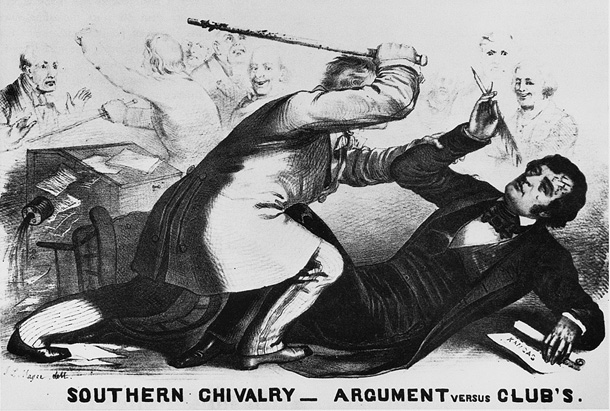The Immorality of Politics as War
One might think the world should have learned from the so-called Crusades, from the religious wars that devastated swaths of 16th and 17th century Europe, from genocidal acts of the 20th century, or from the “where empires go to die” conflicts in Afghanistan that a state of perpetual war creates hell on earth. And hell is an awful place to live. The strategy of acquiring property through purging and purifying a land of whoever is determined to be dirt soaks the earth with blood and rots the soul of a people. One might think. But clearly we continue to behave as if war makes life better.
Our nation today evidences the consequences of politics conceived as war.
Politics conceived as war a failing moral strategy. Lakoff and Johnson wrote that we all live in our metaphors. Framing conflict as battle rather than “I don’t know your dance steps” is more than linguistic choice. The difference opens and closes options and strategies. Politics as war guts the spirit of democracy and closes the doors to a more just and compassionate future.
Politics as war is brutal on truth and integrity. The truth is whatever the leaders say it is. Lying is expected. Deception, double-dealing, digging up dirt—all good.
I concur with historians who draw a direct line from then House speaker Newt Gingrich’s jeremiads in the 1990s that politics is war and 1/6. Gingrich railed against politics as compromise, that the other side is an opponent or worthy adversary. No compromise. The other is the enemy and must be utterly defeated.
Now, no idea takes on a life of its own all by itself. An idea requires a receptive ecology to grow into a movement and cultural agents to spread, amplify, and perpetuate the idea. Speaker Gingrich was a powerful cultural agent but the idea of politics as war, to change the metaphor, just needed a spark. There was plenty of kindling.
 Between America’s nearly perpetual shooting wars and the hopes of generations of millenarian Christians who never liked democracy nor religious freedom in the first place, America has never lacked a receptive soil and cultural agents to keep fighting.
Between America’s nearly perpetual shooting wars and the hopes of generations of millenarian Christians who never liked democracy nor religious freedom in the first place, America has never lacked a receptive soil and cultural agents to keep fighting.
Consider this. The U.S. and its colonial forebears warred against: the nations which lived here for millennia; the French; the British twice; the Spanish and the Mexicans; each other (Civil War); the Kingdom of Hawaii; enemies in two world wars; Korea; Vietnam and Cambodia; Iraq; terrorists (with enormous numbers of civilian victims); Grenada. Add to this (I’m sure partial) list: Jim Crow-era war on Black Americans; war on poverty; war on drugs; bombing Guatemala City (and then training those who from 1960 to 1996 killed nearly 200,000 Mayans) to protect the interests of American fruit companies.
Then there are those estimated 400 million guns held by the civilian population readying to protect and defend…
Surely, we the American people are in love with the metaphor of war and the smell of gunpowder.
Liberal Christians who embraced the power of language and who joined President Eisenhower in his call to reject the military-industrial complex have moved away some from their evangelical ancestors who employed and employ war imagery gladly.
Evidence: conflicts when “Onward Christian Soldiers” was being considered for new denominational hymnals. For the most part, you won’t find liberal Christians calling themselves “prayer warriors” or serving as team chaplains for professional sports. For generations beginning with the Vietnam War, more liberal Christians eschewed military chaplaincy. Several liberal/progressive seminaries have recently begun programs to address the unintended consequences of a mostly conservative, and dangerously millenarian, Christian chaplaincy.
Millenarian Christians live in the metaphor of Christianity as battle. They believe God will someday soon rend the curtain of history and begin to enact a version of the battle-soaked visions of Revelation. Today–in addition to the traditional “all other religions, and probably a lot of Catholics and Orthodox and mainline Protestants–the target populations are liberals, secularists, humanists, communists, homosexuals, feminists, Democrats, and pandemic restrictions. Oh, and critical race theory and BLM and antifa.
Sound familiar?
A multicultural, messy, loud democracy has no place in a war-positive, millenarian world. Only the Elect, not to be confused with “the elected,” have a right to rule. It is a righteous action to lie and deceive in order for the Elect to rule as regents of the coming King. Use democracy to undermine democracy to prepare for the coming kingdom.
For all of us—who believe in the inherent dignity of every person, who believe we are created for community, who believe freedom for one entails protecting the freedom of all as well as sorting the inequalities that rob some people of their freedom, who believe that shalom is based on justice and love, and who believe that politics should be the art of addressing problems for the sake of a better world for all living beings—for all of us, politics as war (a war often aided by religion, or maybe even politics as the tool of millenarian religion) is immoral, and maybe an abomination.
Dr. Gary Peluso-Verdend is president emeritus at Phillips Theological Seminary and is the executive director of the seminary’s Center for Religion in Public Life. The opinions expressed in this blog are those of the author. Learn more about the Center’s work here and about Gary here.


Comments are closed.